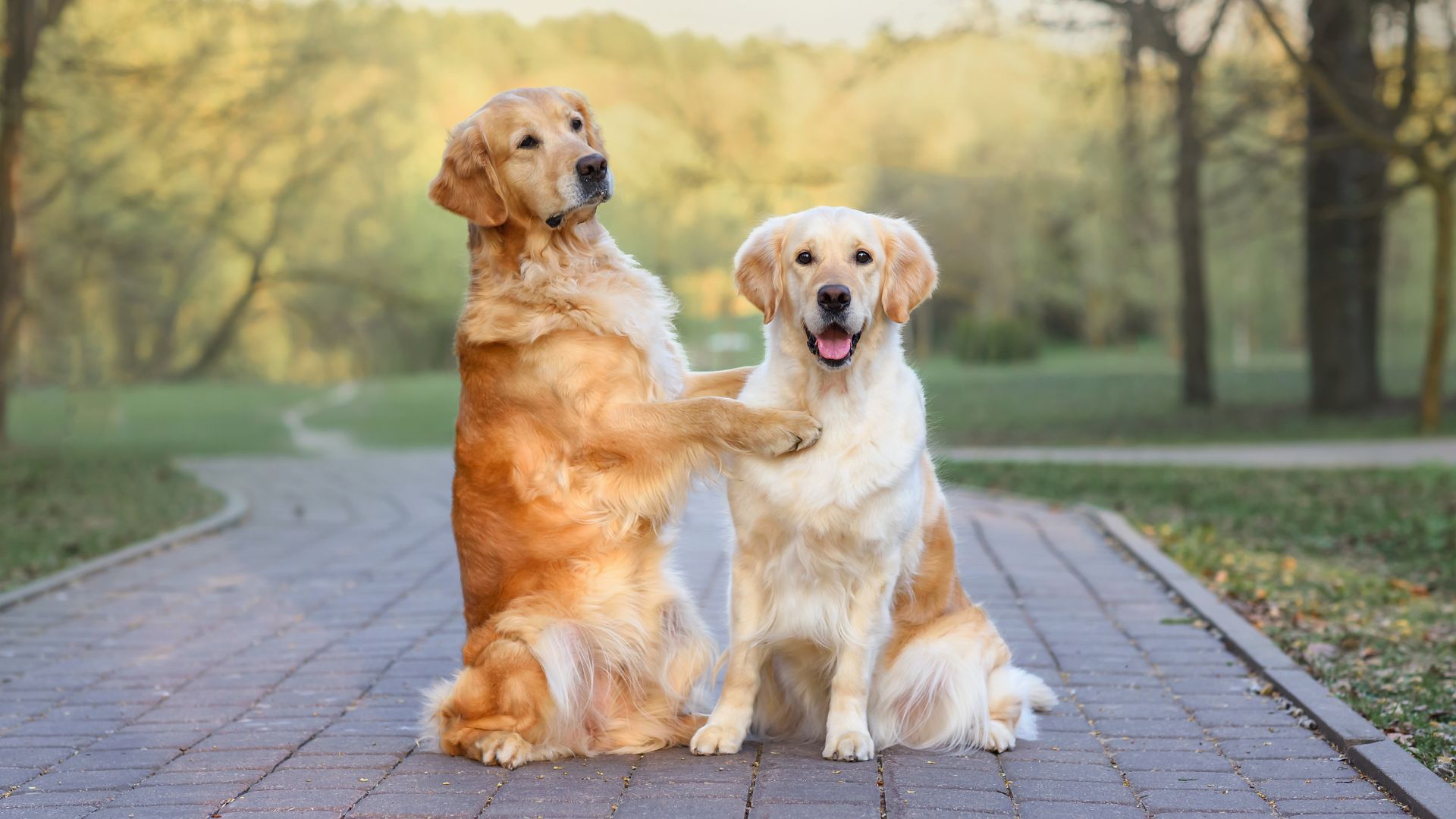When choosing a dog for a multi-pet household, certain dog breeds stand out for their sociable nature and ability to make friends and get along well with other dogs instantly. These affectionate breeds thrive in households with multiple animals, forming bonds with other dogs and humans alike.
Hunting dogs tend to be energetic and playful, while some offer a more laid-back, yet sociable, presence.
Whether you’re a first-time owner or experienced dog lover, these friendly dog breeds will bring joy and companionship to your home, helping foster a peaceful atmosphere for both pets and people.
For families with children, their playful nature and affectionate disposition make them excellent companions for kids and other pets. With the right training and socialization, these dog breeds will quickly adapt to a multi-pet environment and become lifelong best friends.
These are the top dog breeds, sweet-natured and able to get along well with other dogs instantly.
Dog Breeds That Make Friends With Other Dogs Instantly
1. Golden Retriever
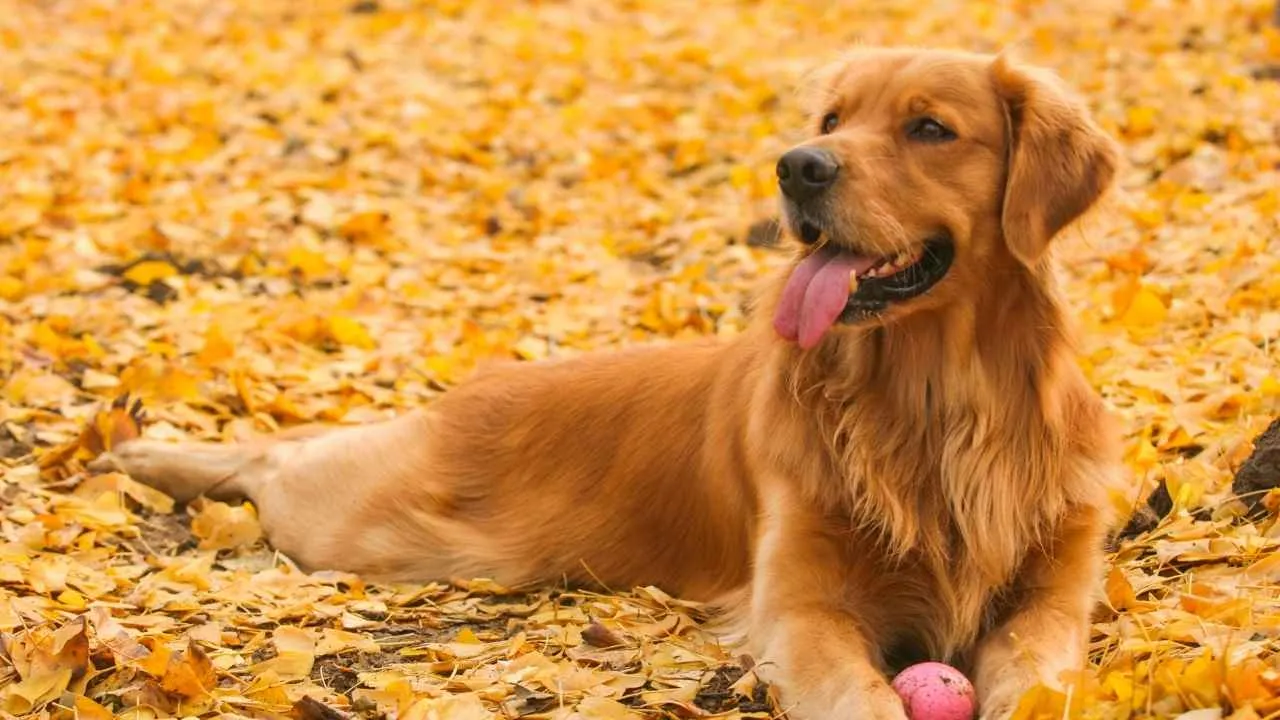
Friendly Nature
Golden Retrievers are the epitome of a friendly dog breed, known for their sociable and affectionate nature, according to PetMD. They easily bond with humans and other pets, making them great family companions.
Their joyful demeanor and playful approach to life mean they can befriend new people and dogs with ease, often carrying their puppy-like energy into adulthood.
Grooming Needs
Golden Retrievers have a medium to long, thick coat that sheds quite a bit, so regular grooming is essential. Brushing them at least three times a week helps manage shedding, while more frequent brushing during shedding season keeps their coat in top condition.
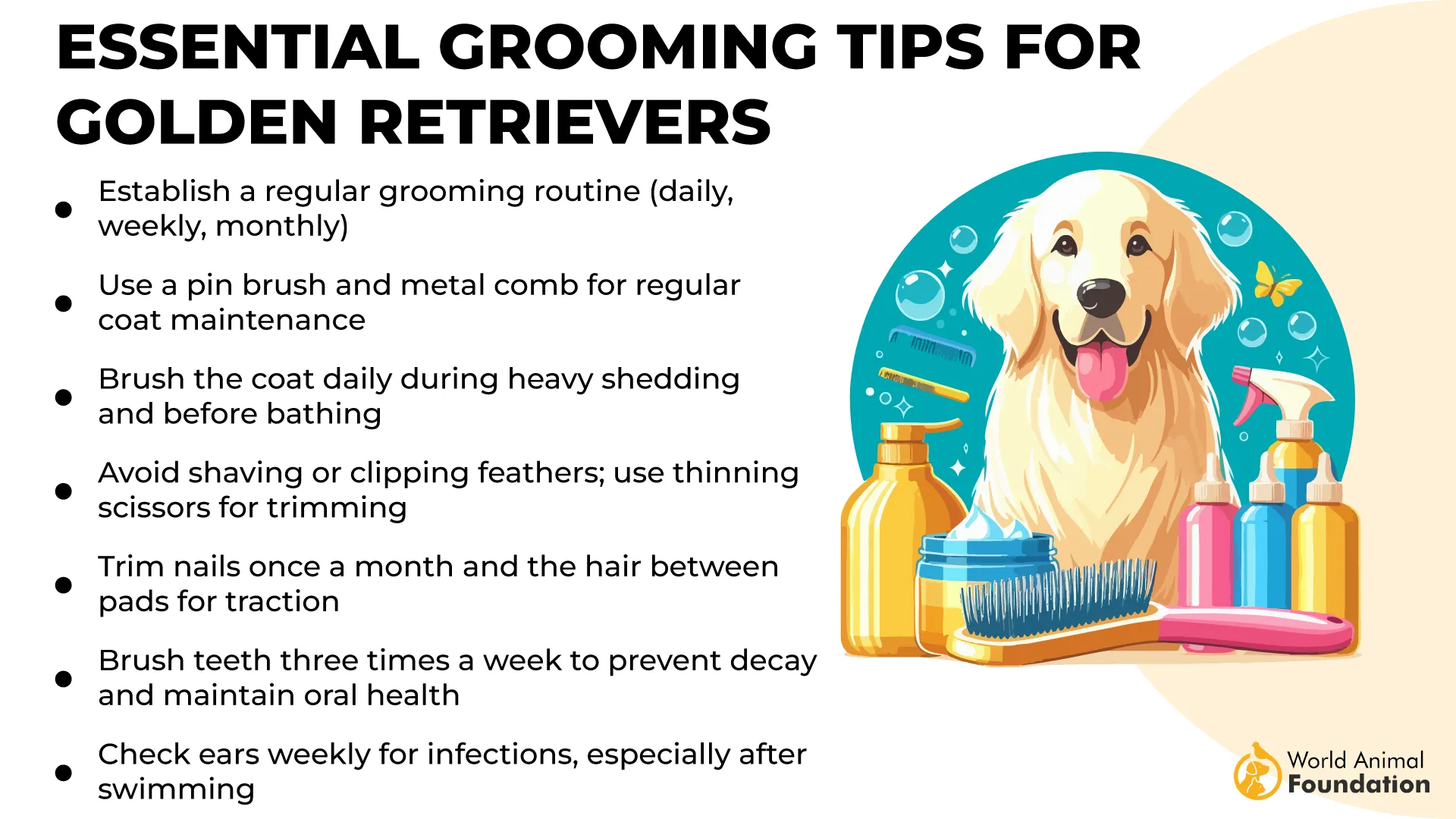
Avoid clipping their coat, as it helps regulate their body temperature, and always use a dog-safe shampoo for their swimming adventures.
Training Challenges
Golden Retrievers are intelligent and eager to please, making them relatively easy to train. While they are generally well-behaved, they should not be left alone for long periods, as they can become anxious or chew out of boredom.
Proper socialization from a young age is key to ensuring they interact well with both humans and animals.
2. Labrador Retriever
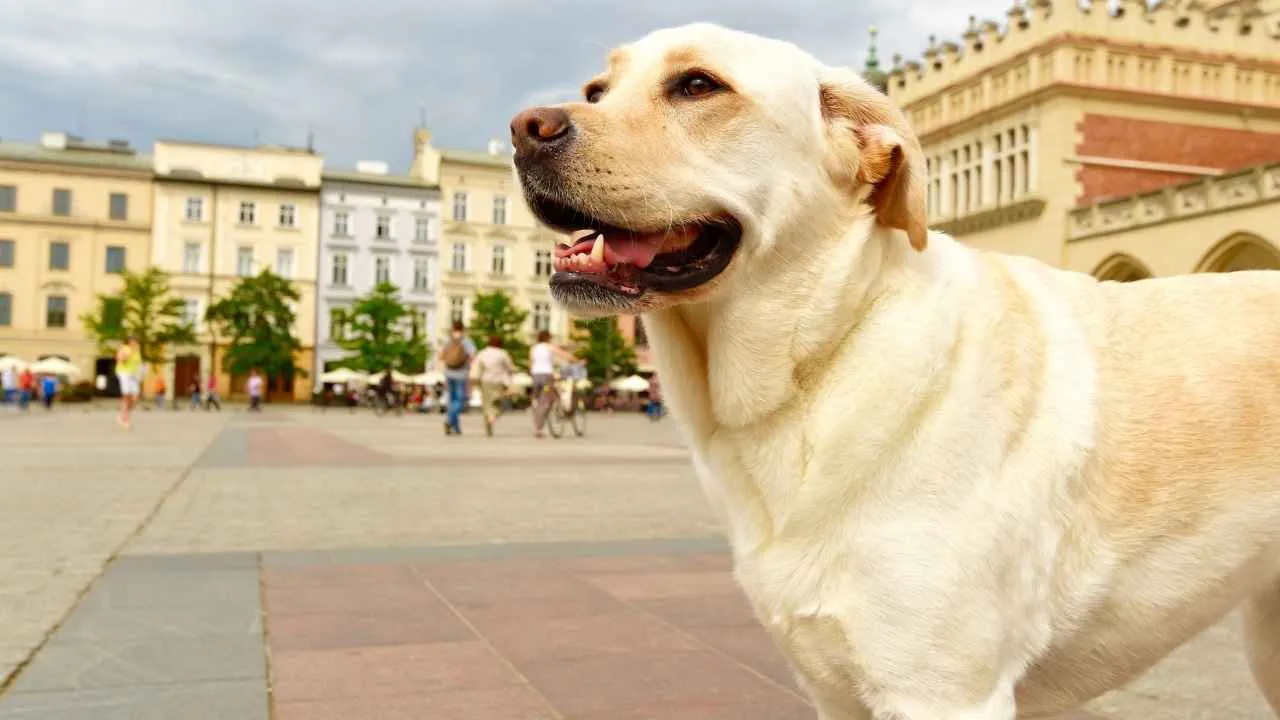
Social Butterfly with a Big Heart
Labrador Retrievers are gentle with children and get along well with other dogs, making them a perfect fit for households with multiple animals. Labs’ friendly temperament means they’re happy to greet strangers, yet they remain protective and are loyal dogs to their families.
Grooming and Maintenance
Labrador Retrievers have a short, dense double coat that is water-resistant but sheds regularly. While their coat doesn’t require professional trimming, keeping their grooming routine consistent ensures a clean, healthy coat.
Training Tips for Success
Highly intelligent and eager to please, Labrador Retrievers are easy to train, though their energy levels can sometimes make them a handful. Regular exercise, mental stimulation, and a strong, consistent training regimen will help your Lab stay well-behaved and focused.
3. Beagle
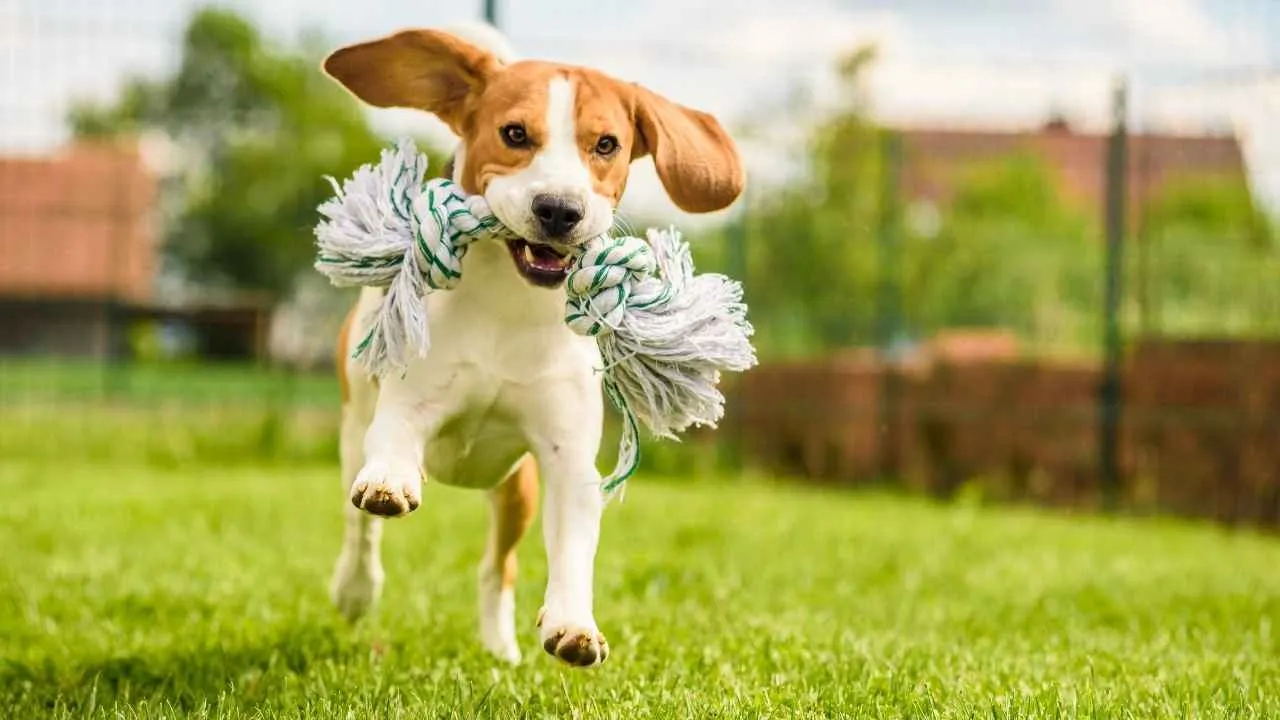
Fun-Loving and Social
Beagles are known for their loving and affectionate nature, making them fantastic family dogs. They are great with children and get along well with other dogs, though their hunting instincts often lead them to follow interesting scents.
Beagles are friendly and will happily engage with new people, though they may bark or howl when introduced to unfamiliar situations.
Grooming Essentials
Beagles have a smooth, short coat that is relatively easy to maintain, but they do shed regularly. Weekly brushing helps keep their coat in good condition and reduces loose hair around the house.
While their grooming needs are minimal, Beagles do require regular ear cleaning due to their floppy ears, which can trap moisture and debris, according to the AKC.
Training Challenges
Training Beagles can be a bit tricky due to their independent, scent-driven nature and short attention span. They respond best to positive reinforcement methods, especially when food is involved.
However, Beagles need consistent training from an early age to avoid unwanted behaviors like counter-surfing or excessive barking.
4. Cavalier King Charles Spaniel
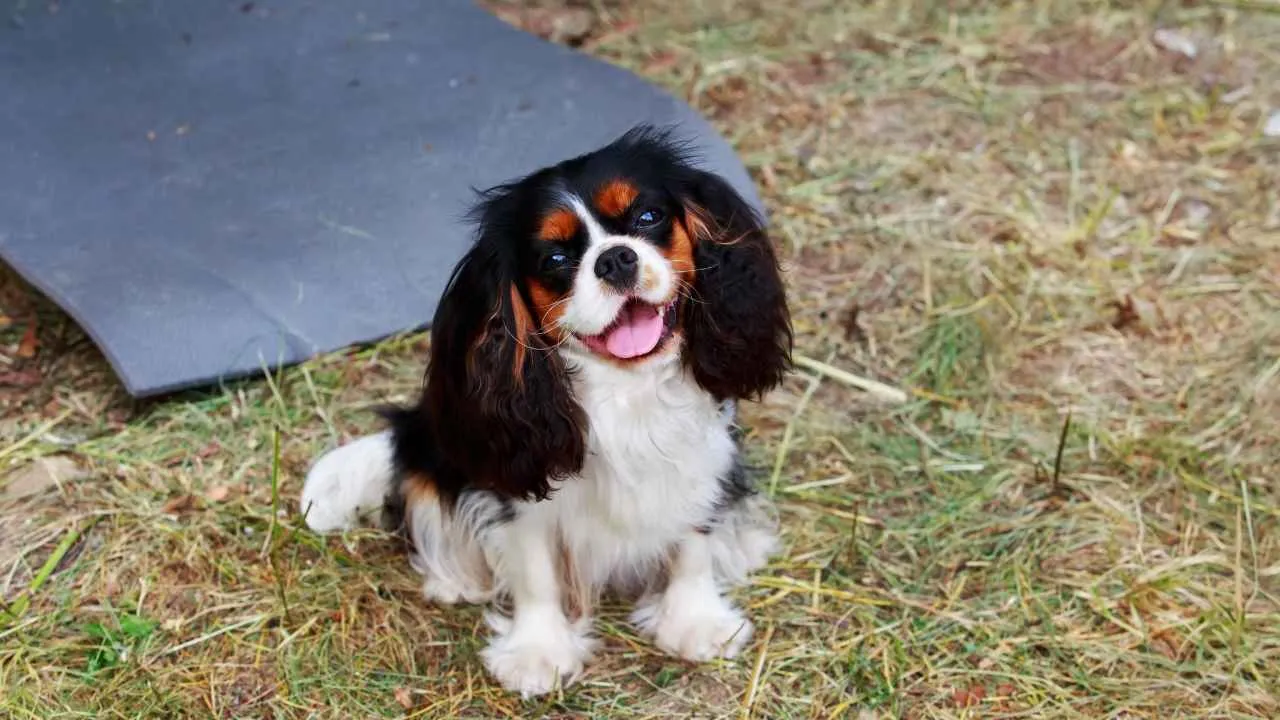
A Heart Full of Love
Cavalier King Charles Spaniels are known for their sweet, gentle, and loving nature, making them excellent companions for families with other dogs.
However, due to their need for constant attention, Cavaliers can become anxious if left alone for long periods, making them ideal for homes where someone is often around.
Grooming and Coat Care
Cavaliers have beautiful, silky coats that require regular grooming to prevent matting. Daily brushing is ideal, especially during shedding seasons, to keep their coat healthy and shiny. Regular professional grooming is also recommended to maintain their luxurious fur.
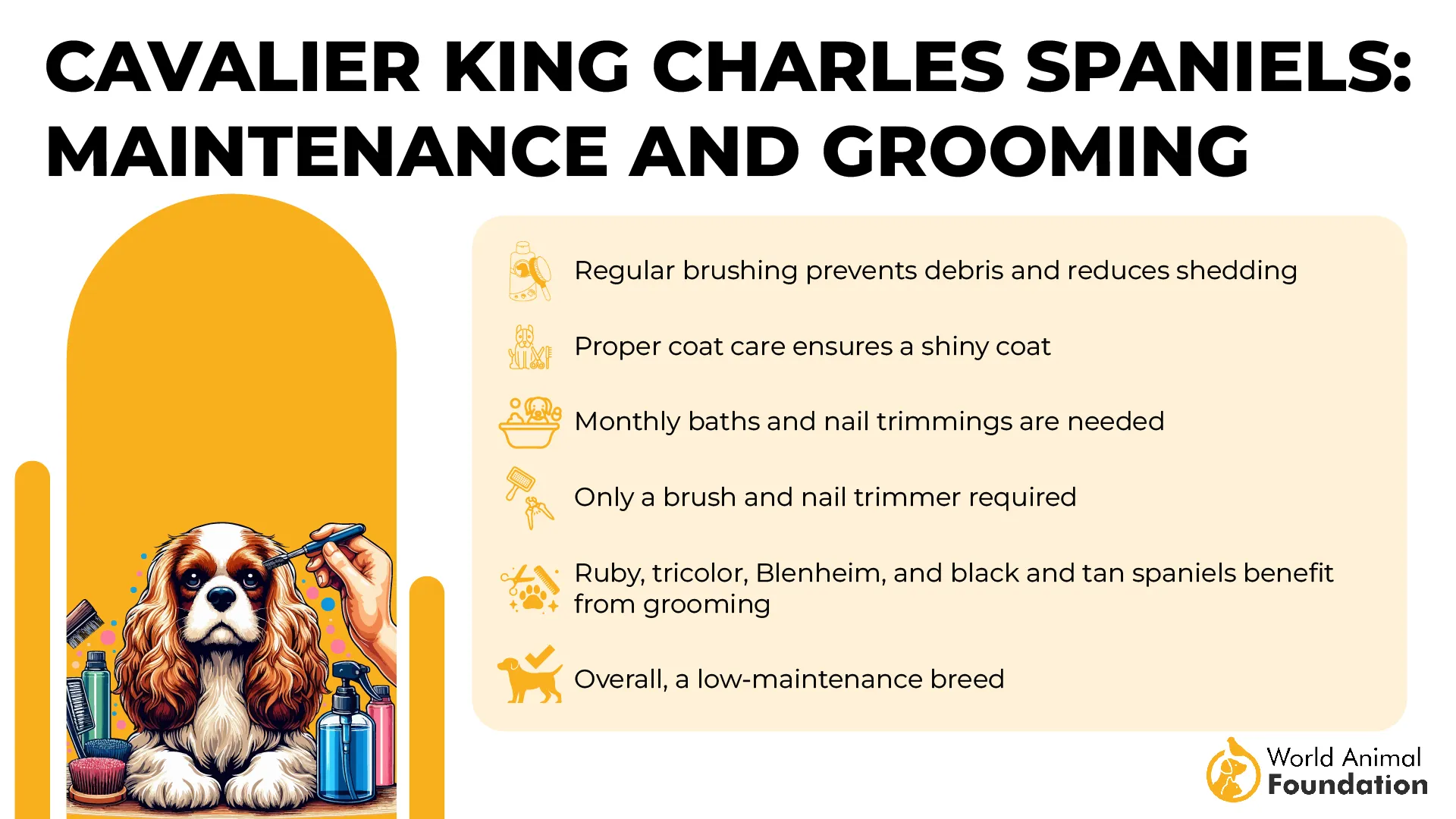
Despite their high grooming needs, their affectionate nature makes the effort worthwhile.
Training and Socialization
Eager to please and highly trainable, Cavaliers respond well to positive, reward-based training. Early socialization is key to preventing any anxiety or bad habits, as per PDSA.
Though they are generally great with other dogs and pets, consistent training will help them grow into well-behaved, confident companions.
5. Poodle
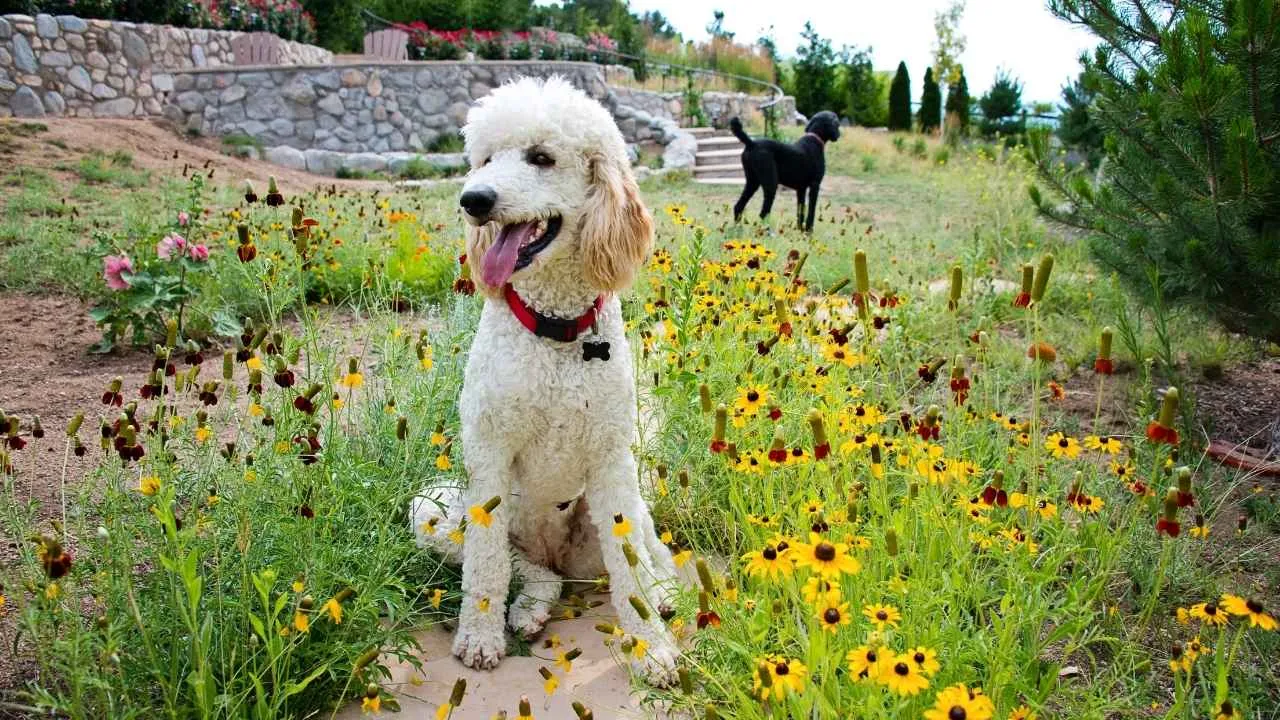
Playful, Lively, and Loving
Poodles, known for their elegance and intelligence, are fun-loving, active dogs that thrive on human companionship. Whether they’re swimming, playing fetch, or joining you for a brisk walk, Poodles are happiest when engaged in physical and mental activities, as per Britannica.
They’re highly social and enjoy interacting with both family members and other dogs, making them excellent family dogs.
Grooming and Coat Care
Poodles have a beautiful, curly coat that sheds very little, making them a good choice for allergy sufferers. However, this coat requires regular grooming to prevent matting, and frequent clipping is essential to keep it in top shape.
Training and Mental Stimulation
Poodles are highly intelligent and easily trainable, excelling in obedience and agility. Their love for attention means they’re quick learners, but they can develop bad habits if not given enough stimulation.
Regular training, early socialization, and plenty of exercise are crucial to maintaining their happy, balanced demeanor.
6. Cocker Spaniel
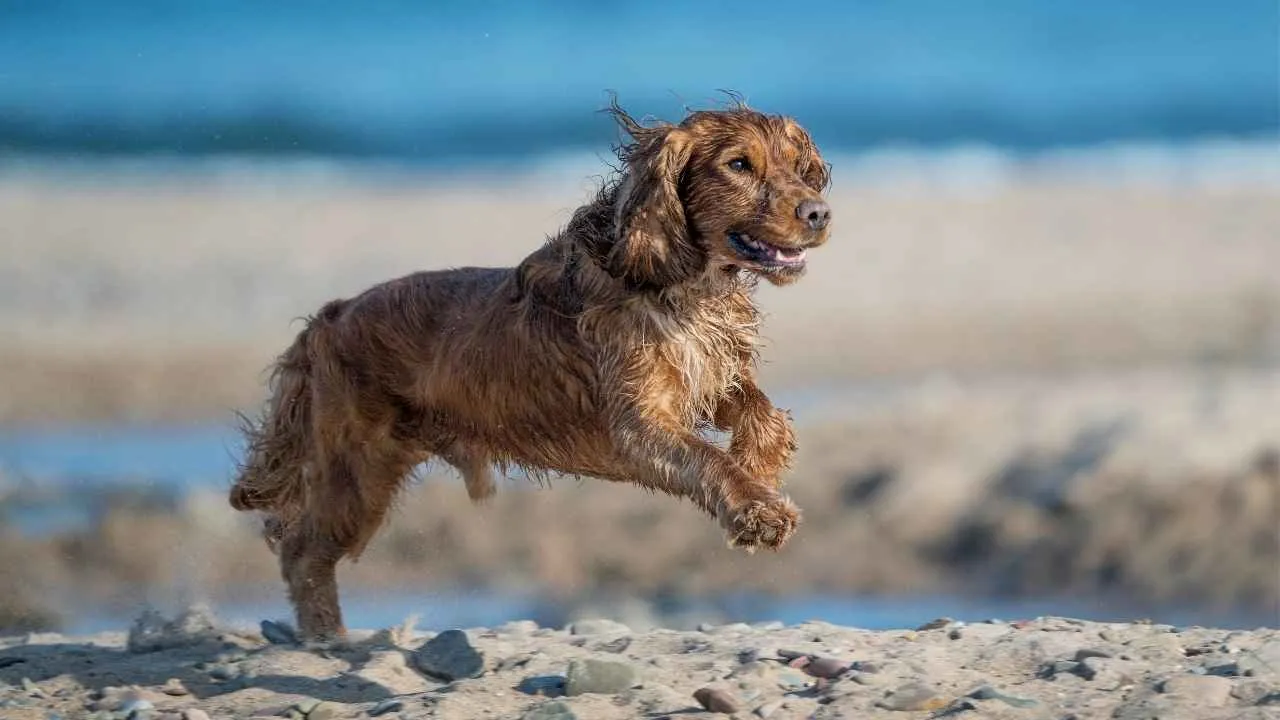
Spirited and Sociable
Cocker Spaniels are well-known for their friendly, people-loving nature. Their playful energy and wagging tails make them perfect family pets, as they’re always ready for a game or a walk. They’re equally happy living in the city or countryside, as long as they have plenty of space to run and play.
Grooming and Coat Care
Cocker Spaniels have beautiful, long coats that require regular grooming. Daily brushing is essential to prevent tangles and mats, especially after walks when they may pick up debris.
With the right care, their soft, shiny fur will be a showstopper, but be ready for the time commitment that comes with their grooming needs, according to Hill’s Pet.
Training and Socialization
However, consistent training is key as they can pick up bad habits just as easily as good ones. Early socialization with different people, other dogs, and environments is crucial to helping them become well-rounded, confident dogs.
Keep their training sessions fun and varied to keep them engaged, and be patient as they thrive in a supportive, consistent environment.
7. Pembroke Welsh Corgi
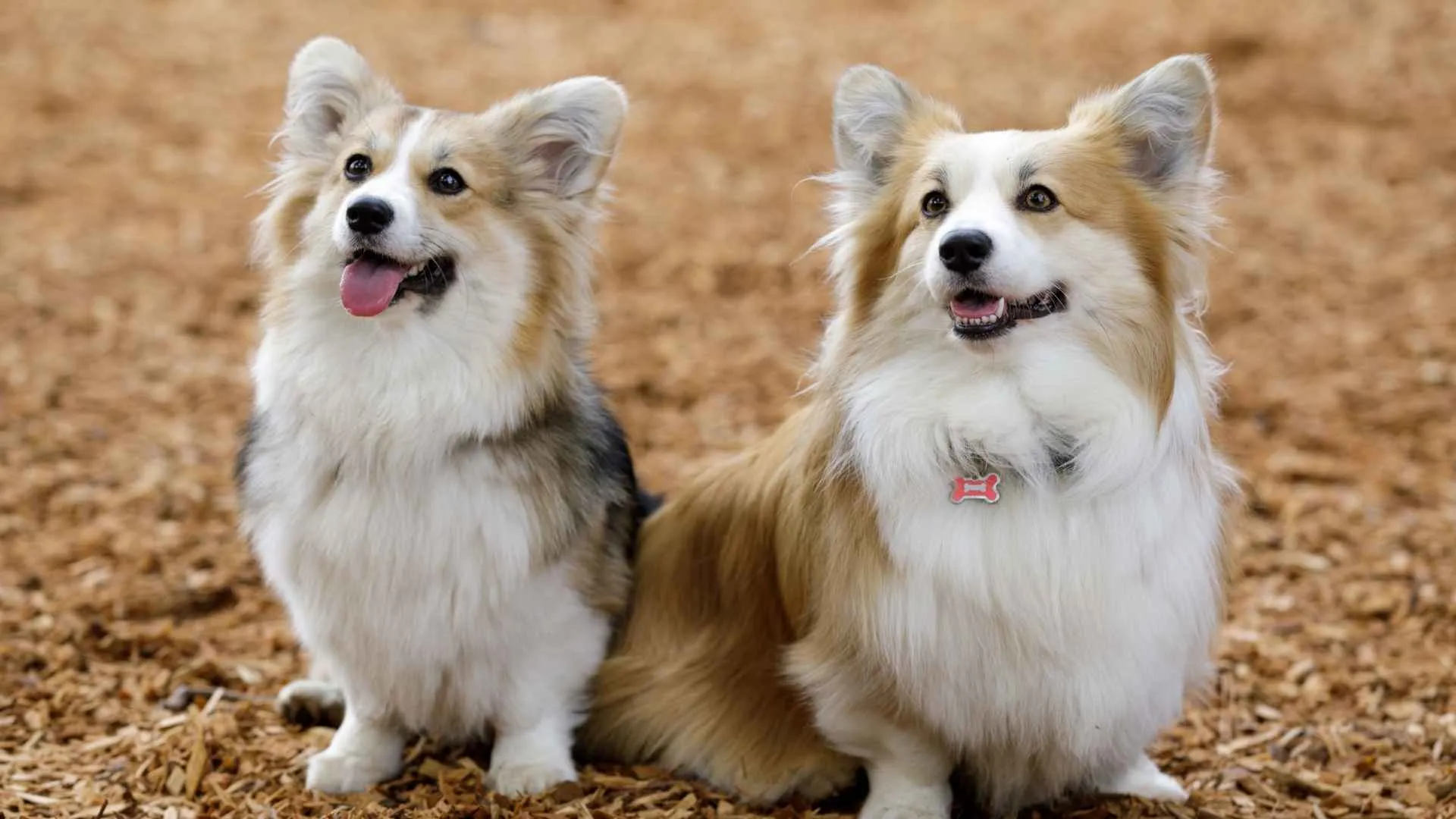
Playful and Social
Pembroke Welsh Corgis are lively, intelligent, and incredibly affectionate dogs. Known for their strong bond with family, they enjoy playtime and social interaction but aren’t overly demanding of attention.
They are happy to join in family activities and have an independent streak, making them a great choice for active owners who can keep up with their energy and need for mental stimulation, as per Purina.
Grooming and Coat Care
Despite their small size, Corgis shed heavily, especially during seasonal changes. Regular weekly brushing is important to manage their shedding, and more frequent grooming may be necessary during spring and fall.
Their short but dense coat requires little more than the occasional bath to stay looking good, but it’s important to check their ears, teeth, and nails regularly for overall health.
Training and Mental Stimulation
Corgis are highly trainable due to their intelligence and eagerness to please, although they have an independent nature, often making decisions for themselves. They respond well to positive reinforcement and enjoy engaging in activities like herding, agility, and obedience.
8. Australian Shepherd
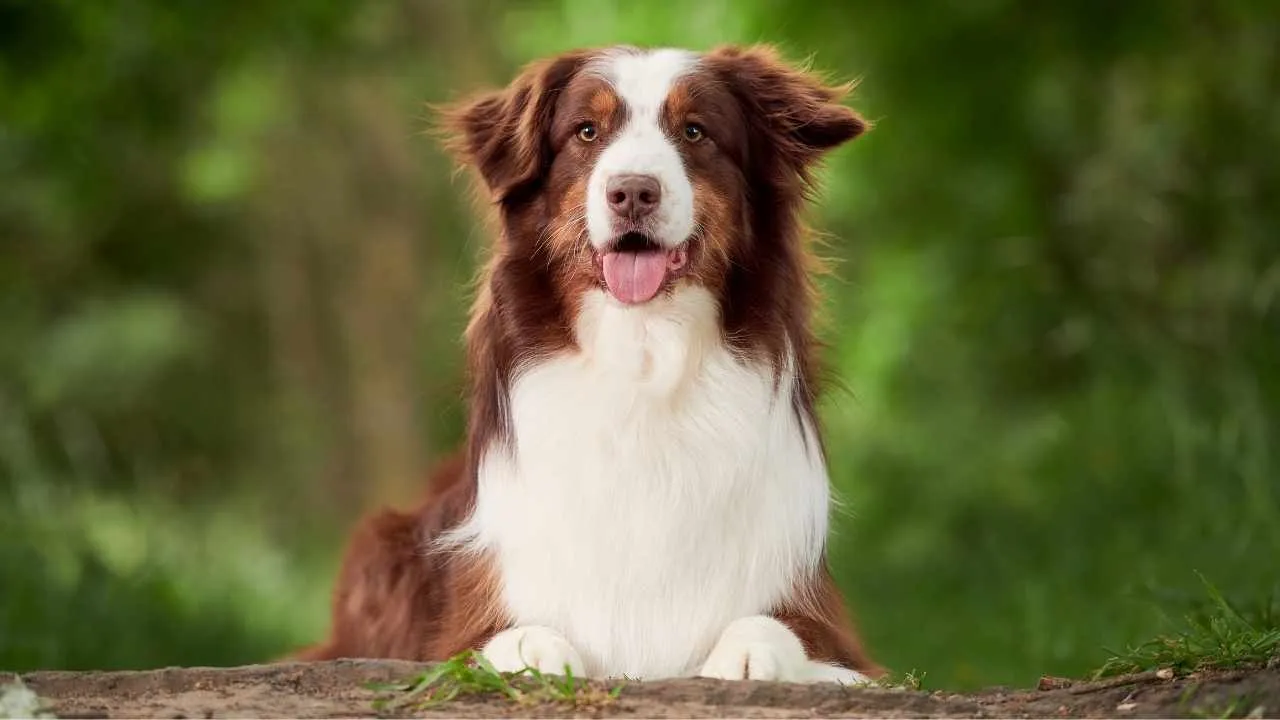
Herding Instincts and Protective Nature
Australian Shepherds are renowned for their herding instincts and protective nature. Whether it’s rounding up children, other dogs, or even strangers, they instinctively take on a protective role. While they’re not aggressive, they will alert you to any unusual activity with their sharp bark.
High-Energy, Active Lifestyle
If you’re an active individual or family, the Australian Shepherd could be a perfect match. They love engaging in activities like hiking, running, and playing fetch, and they thrive in environments where they can get plenty of physical and mental stimulation.
Ideally, they do best in homes with large yards or on farms where they can roam and stay busy.
Grooming and Coat Maintenance
Despite their lush, thick coat, Australian Shepherds are considered average shedders. Regular grooming is essential to keep their coat healthy and prevent mats. Brushing once a week with a bristle brush should suffice, but they may require additional attention during shedding seasons.
9. Border Collie
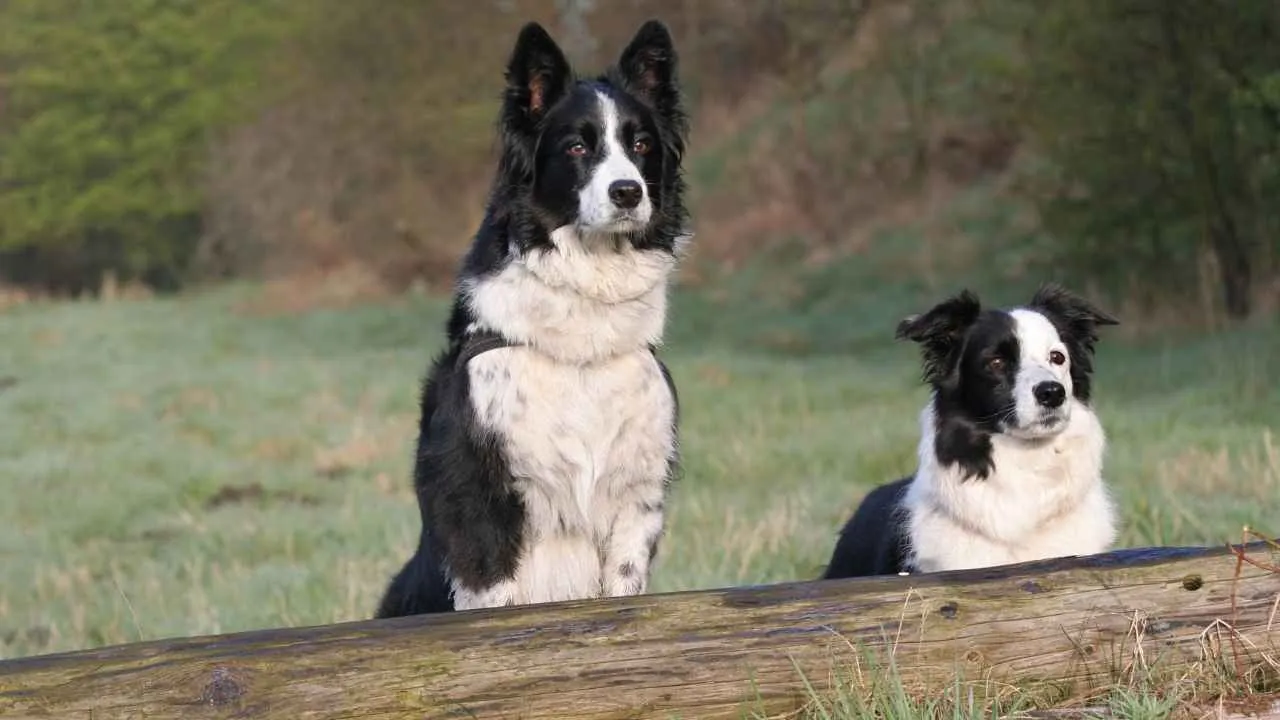
Training and Socialization
Because of their intelligence and eagerness to please, Border Collies excel in training, picking up basic commands quickly and advancing to more complex tasks. However, they need early socialization to develop into well-rounded pets.
If not properly socialized, they may become reserved or even overly protective around strangers.
Family Life and Social Behavior
Border Collies are extremely playful, interactive, and affectionate with their families and other dogs. However, they may be a bit too energetic for very young children or elderly adults.
Their intelligence and need for constant stimulation mean that they tend to bond strongly with one person or family, and they may be aloof with strangers.
Herding Instincts and Boundless Energy
Border Collies are often considered the smartest dog breed due to their extraordinary ability to learn and problem-solve. These dogs were originally bred to herd livestock, and that herding instinct is still very much alive today, whether they’re on a farm or in a family home.
Border Collies need constant mental stimulation, or they may turn their energy toward less desirable activities like chewing or digging.
Conclusion
When choosing a dog that easily makes friends, look for the dog breeds known for their affectionate and sociable nature. These dogs are great companions for active families and are friendly with both other dogs and pets.
Early socialization helps them grow into gentle companions, ready to bond with children and other dogs, and thrive in a family environment.
Dogs with a playful and energetic disposition tend to be highly social and get along well with other dogs, making them perfect for families with multiple pets.
Their intelligence and enthusiasm for exercise ensure they stay engaged and happy, often becoming best friends with both humans and other dogs.
In the end, other dogs that are outgoing, affectionate, and enjoy physical activity are ideal for those looking for a loyal, friendly companion. With the right training and socialization, these dogs can form deep bonds with other dogs, providing endless love and joy in any household.


